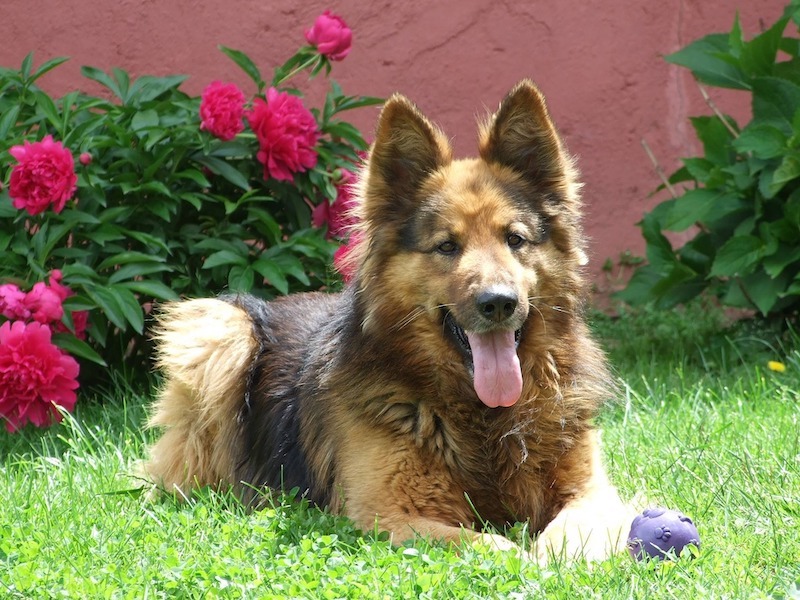Pets and young children naturally have an inquisitive nature, and the lovely Peony contains a toxin called paeonol which is concentrated in the roots and bark. If ingested in large amounts, paeonol can cause gastrointestinal problems in humans and animals. Ingesting any part of the Peony including the flowers may cause nausea, abdominal pain, or faintness.
Always supervise young children or pets when in the garden or near garden plants so they don’t inadvertently chew on them out of curiosity. Look for signs or symptoms if you think your child or pet has ingested any part of your Peony plant and seek appropriate medical care immediately. Although Peony root is a component used in traditional Chinese medicines, avoid ingesting it to be on the safe side.

Are Peonies Poisonous to Children?
All parts of Peonies contain paeonol, which is more concentrated in the plant's roots and is known to cause mild gastrointestinal problems. Always supervise young children in your garden, as they are naturally prone to put things in their mouth, especially petals from a large pretty flower like Peony. Seek medical attention immediately if you witness your child eating any part of the plant.
Are Peonies Poisonous to Dogs?
The toxic substance in Peonies is paeonol, and is found primarily in the roots of a Peony plant, but can also be present in the flower petals, bark, and stems, and can cause digestive upset to dogs. Symptoms include vomiting, diarrhea, and lethargy.

Are Peonies Poisonous to Cats?
Peonies are toxic to cats. The level of toxicity to pets is determined by the quantity consumed, your cat's weight, and other health variables. Poisoning can occur if any part of the plant is consumed. Symptoms include nausea, vomiting, and lethargy.
Are Peonies Poisonous to Other Animals?
Peonies are considered highly deer resistant; however, if horses have ingested Peonies, they can incur the same digestive upset as other pets due to the toxic properties of paeonol found in the plant. Consult your veterinarian if you suspect your horse has ingested this plant.
Symptoms Of Peonies Poisoning
Always check with your doctor or veterinarian immediately for guidance if you suspect Peony poisoning.
Here are some common symptoms to look out for:
- Diarrhea
- Nausea
- Vomiting
- Weakness and lethargy
Preventing Peonies Poisoning
Always keep an eye on your pets and children when you let them outdoors because they are bound to be curious about all the scents, textures, and tastes in the garden. Providing a physical barrier such as an open-weave bird netting or lightweight fencing stapled to stakes will not obstruct the view but will keep your pets and toddlers at bay. Using homemade or store-bought pepper spray on all parts of the plant will deter browsing animals. Compile a thorough list of all plants in your garden, and get advice from your veterinarian on additional ways to keep pets from chewing on your plants.
Pet Poison Helpline
If something were to happen to your furry friend, and you suspect that they are suffering from Peony poisoning, there is a poison control hotline to call for 24/7 vet advice. It is called the Pet Poison Hotline, and their phone number is (855) 764-7661.
Sources: "Peony." American Society for the Prevention of Cruelty to Animals. aspca.org
 |
Author Chris Link - Published 02-25-2023 |
